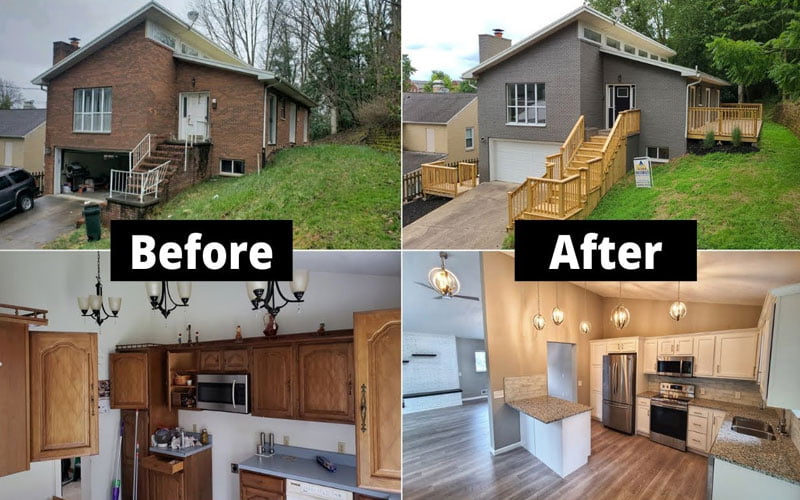House flipping has become increasingly popular over the years. According to Bloomberg the average profit on a house flipping is $66,000, which is more than the average American family of four makes per year. With the right tactics, you can easily turn a distressed property into a profit. The monetary gain along with social media and television networks such as HGTV portraying house-flipping as an easy way to make a lot of money has saturated the market with pros and amateurs alike.
In order to succeed in this crowded and competitive field, house flippers need a deep understanding of the real estate market, proper financing, knowledge of the construction procedures, and the determination to see the project out until it’s finished. If you’re interested in getting involved in the house flipping industry, here are seven effective tips that are sure to help your endeavor:
Best Ways for Effective House Flipping
Create A Buffer For Your Budget
When creating your budget for your house flipping endeavor it’s important to include a buffer. The buffer to your budget allows you room for error. It’s a security blanket, ensuring that if you are to go over budget you have money saved for just that occasion. Accidents happen, material prices go up, and at the end of the day, every budget is just a guideline.
Pay For A Professional Inspection
Unless you’re a licensed construction worker, it can be incredibly easy to miss major defects within the house you’re flipping. Whether it’s faulty roofing material, rotting foundations, or electrical issues, catching an imperfection before you’ve already poured money into your project will save you a lot of headaches. Invest in a professional inspection, paying for this upfront will cost far less than the fixing the problem
Know Your End Goal
Having a vision of your end goal for your house flipping endeavor is important. Working aimlessly on your project could negatively affect your budgeting. With no outlined plan it becomes easier to tack-on projects. Set a date that you’re aiming to finish your house flipping. This makes it easier for you to adjust your work schedule to meet your deadline.
Research Your Location
As cliche as it sounds, location is everything when selling a house. Before buying a house to flip, look into neighborhoods and counties that are popular or increasing in popularity. Purchasing a home in one of these popular areas will help guarantee a sale for your property. Knowing what the neighborhoods have to offer is important as well, as it will dictate your client base and the way you decide to renovate your house. Find out what the school districts are like and how they measure public safety.
Identify Pivotal Renovations Needed For Your House
When flipping a house, the best way to make your efforts the most effective is to identify which improvements you have to make. Under-improving a house can decrease your sale price, therefore increasing your losses vs your profit. It’s important to understand what people are looking for in the market.
Bathrooms and kitchens are typically the most scrutinized areas of the home. Therefore, they’re also two of the most important rooms of your house you’ll need to renovate. Kitchen remodeling services are affordable and can help you execute the vision you have for your rejuvenated kitchen. Home purchasers prefer updated technology, plumbing, electrical, and appliances.
Don’t OverDo It
One of the biggest mistakes amateur house flippers make is overdoing it. Unless you’re sure your house can be listed in a higher market bracket because of the location, hold off on going all out with your renovations. Choose good quality materials for average prices, and get updated technology that fits your budget. There’s a misunderstanding amongst some people who enter the house-flipping industry that putting more into the house will get you more money out of it. If anything, it will get you into more trouble than those crazy expensive updates are worth.
Stay Organized
There will be a lot of moving pieces when flipping a house. Staying organized is the only way to ensure you stay on track to complete your project on time and under budget. Use excel sheets and planners to schedule your days. Looking into utilizing a CRM system, used correctly can be a great organizational tool. It gives you and your team a designated space to communicate and look to for schedule updates. Make sure your contractors have your contact information and know-how to reach you if an emergency emerges.





